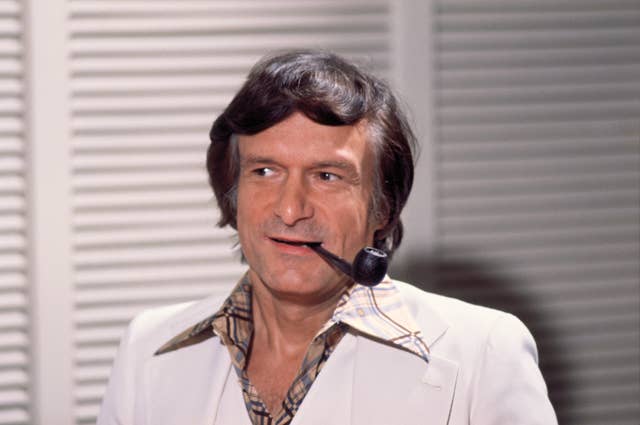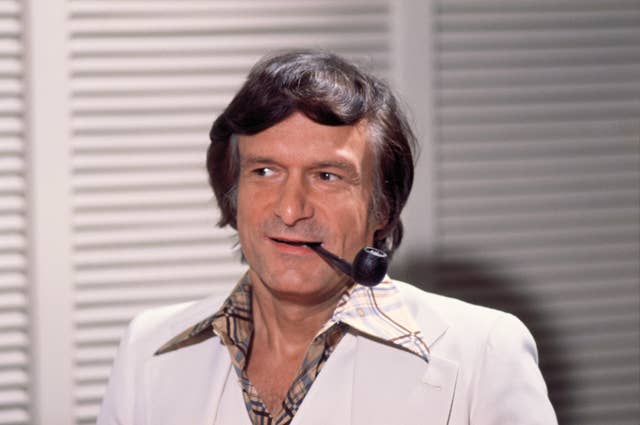
I'm conflicted. Before I put head to pillow last night, I caught word that Hugh Hefner, chief creative officer of Playboy Enterprises, died at the age of 91. My Twitter timeline was, mostly, comments on finding Playboy mags in various wooded areas (or under some relative's bed), but I remember not too long ago that Hefner's Quaalude-fueled trysts with his "girlfriends" were put on blast in the media. Living in a world where almost 40 women accused Bill Cosby of sexual assault, and he was known to slip drugs into their drinks before taking advantage of them—yeah, Hefner's shit doesn't sit right with me, especially when one of the more recent accusations occurred at the Playboy Mansion.
(For what it's worth, Hefner did go on record as saying “Bill Cosby has been a good friend for many years and the mere thought of these allegations is truly saddening. I would never tolerate this kind of behavior, regardless of who was involved.”)
The thing is, I'm not blind to what Hefner meant for freedom of speech and to the magazine world (well, for the most part). And while I wouldn't call Hefner "woke," but he was definitely forward-thinking, especially during an era where it was rare for African Americans to be given the ability to voice their opinions and feelings in the mainstream. Cooper Hefner, who is Hugh's son and chief creative officer at Playboy Enterprises, summed it up best: "My father lived an exceptional and impactful life as a media and cultural pioneer and a leading voice behind some of the most significant social and cultural movements of our time in advocating free speech, civil rights and sexual freedom." Part of Hefner's pioneering stance on free speech and civil rights was giving black leaders, celebrities, and models space in his groundbreaking publication, Playboy, which he should be praised for.
So yes, I'm conflicted, but I can't deny what Hefner did for the culture. Here's a look back at some of these moments.
The Dr. Martin Luther King, Jr. Interview
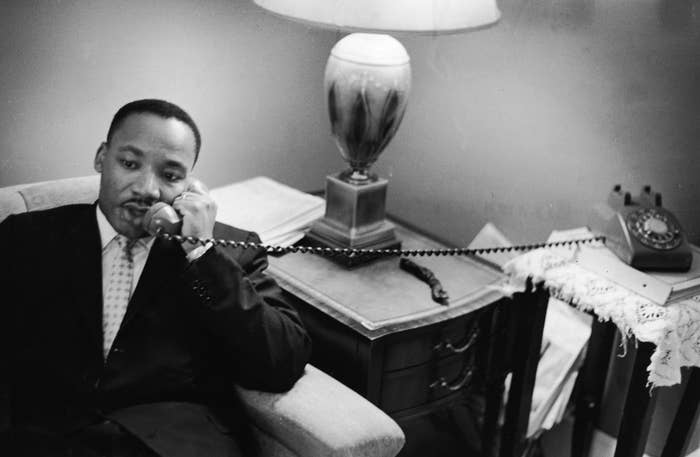
Alex Haley, the famed author who penned The Autobiography of Malcolm X and Roots, was the first person to have an interview published in Playboy (which was with Miles Davis in the September 1962 issue). He spoke with Muhammad Ali about his name change, Sammy Davis, Jr., and Jim Brown, but one of his greatest interviews was with Dr. Martin Luther King, Jr. Their conversations took place not too long after King won the Nobel Peace Prize in 1964, and ran in Playboy the following year as the longest interview King granted ever.
The Malcolm X Interview
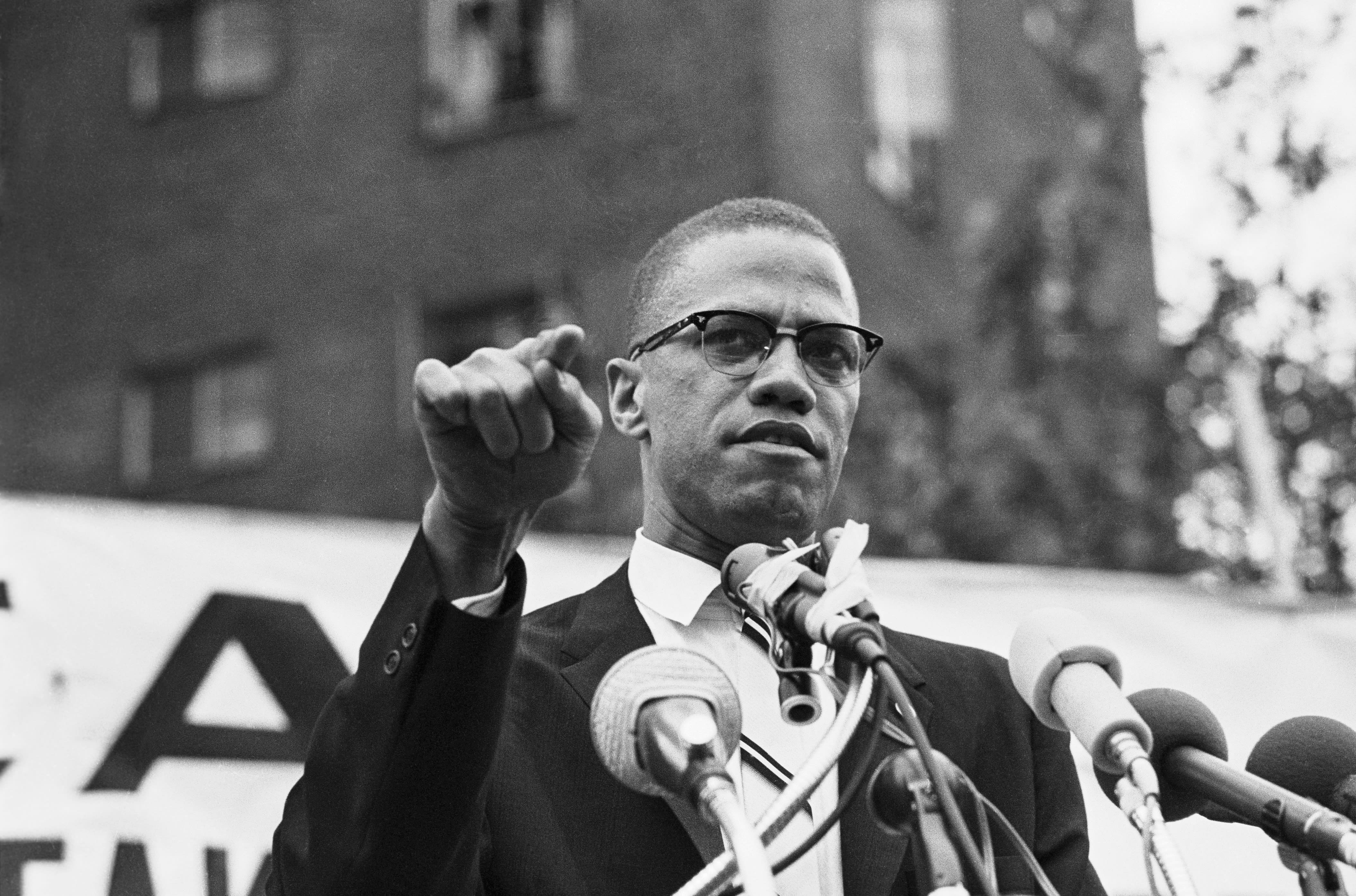
Haley's interview with Malcolm X was equally epic. The aforementioned book The Autobiography of Malcom X was born through these conversations Haley had with the then-face of the Muslim movement in America, but the key to Haley's piece with Malcolm in Playboy was how it captured Malcolm at his height of, well, scaring the fuck out of White America. It was a bold move, considering that racial turmoil in America was boiling over; Malcolm X's fiery rage was vital for some, frightening for others, and Hefner making the decision to run this particular interview (which was prefaced in-book with the editors writing "Many will be shocked by what he has to say. Others will be outraged.") was an important step in helping articulate the feelings of many black people in America to the masses.
Shutting Down Racist Playboy Clubs
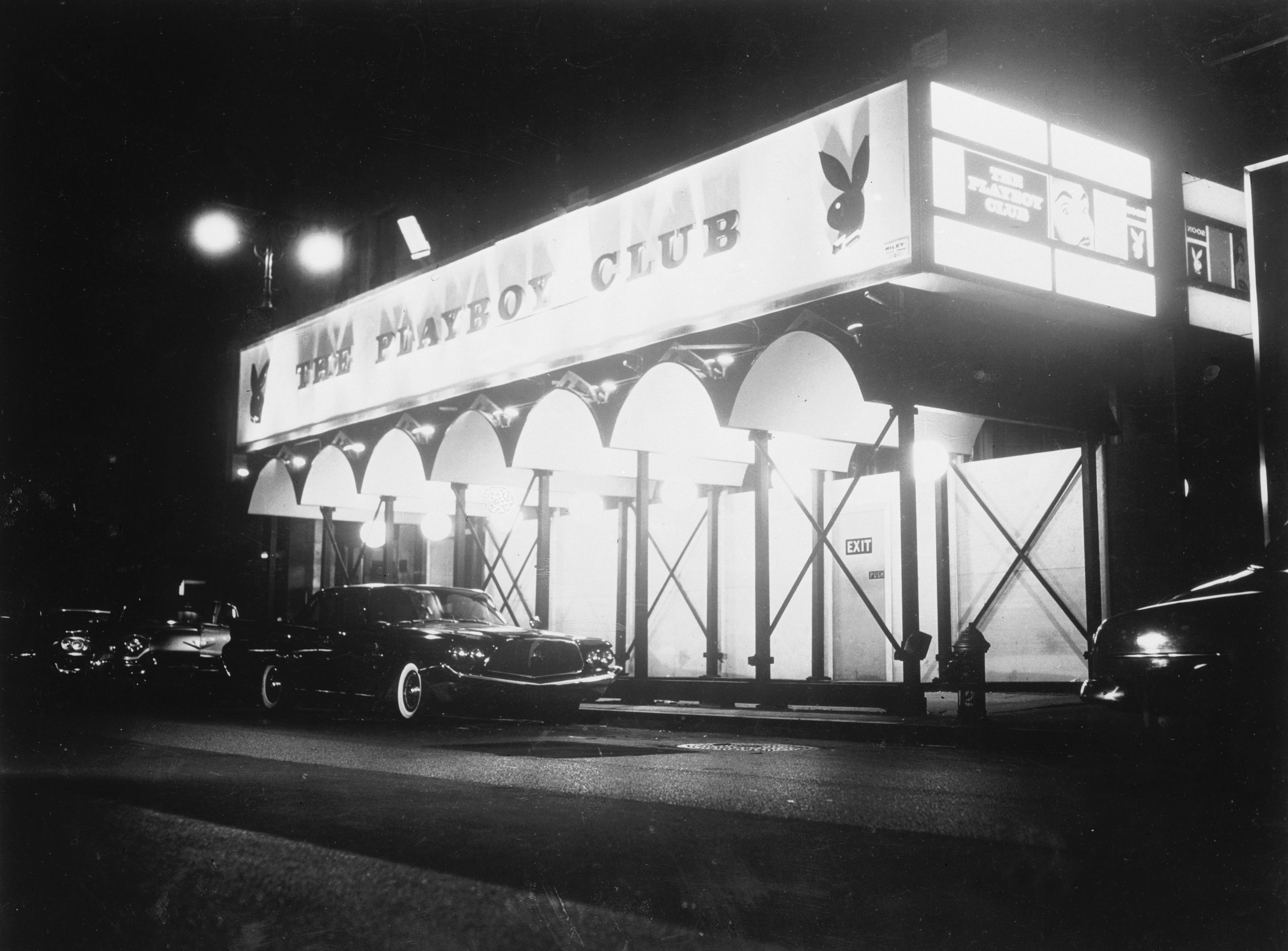
As the Playboy enterprise turned into Playboy Enterprises, Hefner started opening up a number of Playboy Clubs across the country. In 1961, Hefner found out that two of his clubs (in Miami and New Orleans) were denying African American memberships and not hiring Bunnies of color. He took swift action and bought the two franchises back, letting the world know that Playboy wasn't having that. “We are outspoken foes of segregation," Hefner said in a statement. "We are actively involved in the fight to see the end of all racial inequalities in our time."
Everything He Did For Dick Gregory
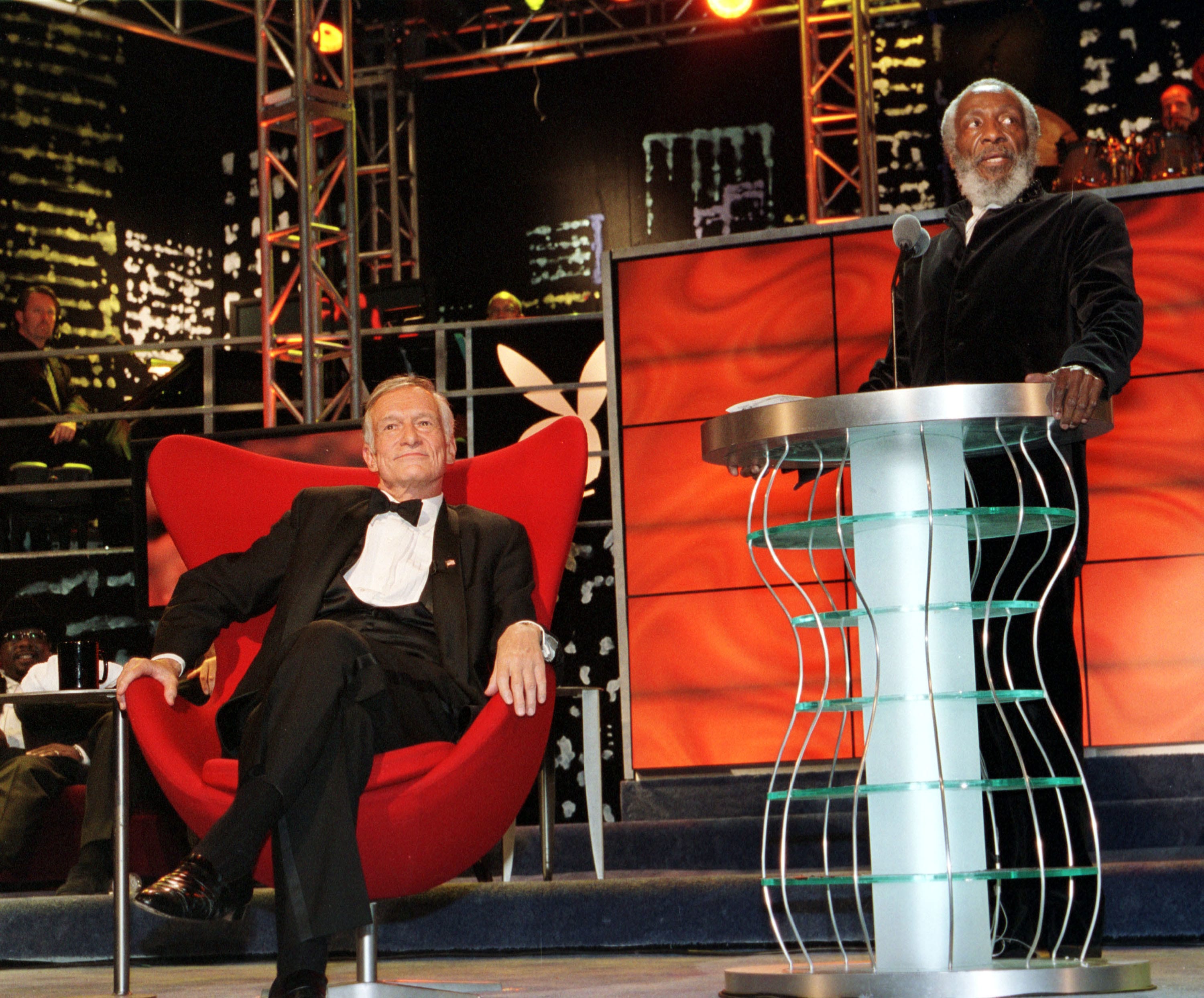
Legendary comedian Dick Gregory (who himself passed away this past August), who kept it 100 during the Civil Rights era and ended up successfully becoming the first black comedian to cross over to white audiences, credited Hefner with giving him his first break in the comedy world. As the story goes, Hefner saw Gregory working at the Roberts Show Bar in Chicago and offered him a gig at his Chicago Playboy Club. "So far as I know," Gregory recalled, "that was the first time in history a Negro comedian was invited into a white club. They offered me $50 for the night. I'd never made more than ten." Word is that he got a $250 a week contract from Hefner, and two years later Gregory was a bonafide star.
"You had a courage when no one was bringing in blacks and minorities, and let you stand flat-footed in America and just talk, you brought me in," Gregory told Hefner during his Comedy Central roast in 2001. "You didn't give me a lecture. You gave me no instructions."
Gregory also says that Hefner was the one who put up $25,000 to help find the bodies of three men who were murdered during Mississippi's Freedom Summer in 1964. "I called Hugh Hefner," Gregory remembered. "I asked him to deposit $25,000 in my account, so I could put that up as a reward. The next day the FBI put up $30,000. Hefner understood what those rednecks didn't: that things had changed. That you could no longer argue that you'd ‘killed three Jews'. Or ‘killed three blacks’. What you'd done was, you'd killed three fellow human beings."
The Darine Stren Playboy Cover
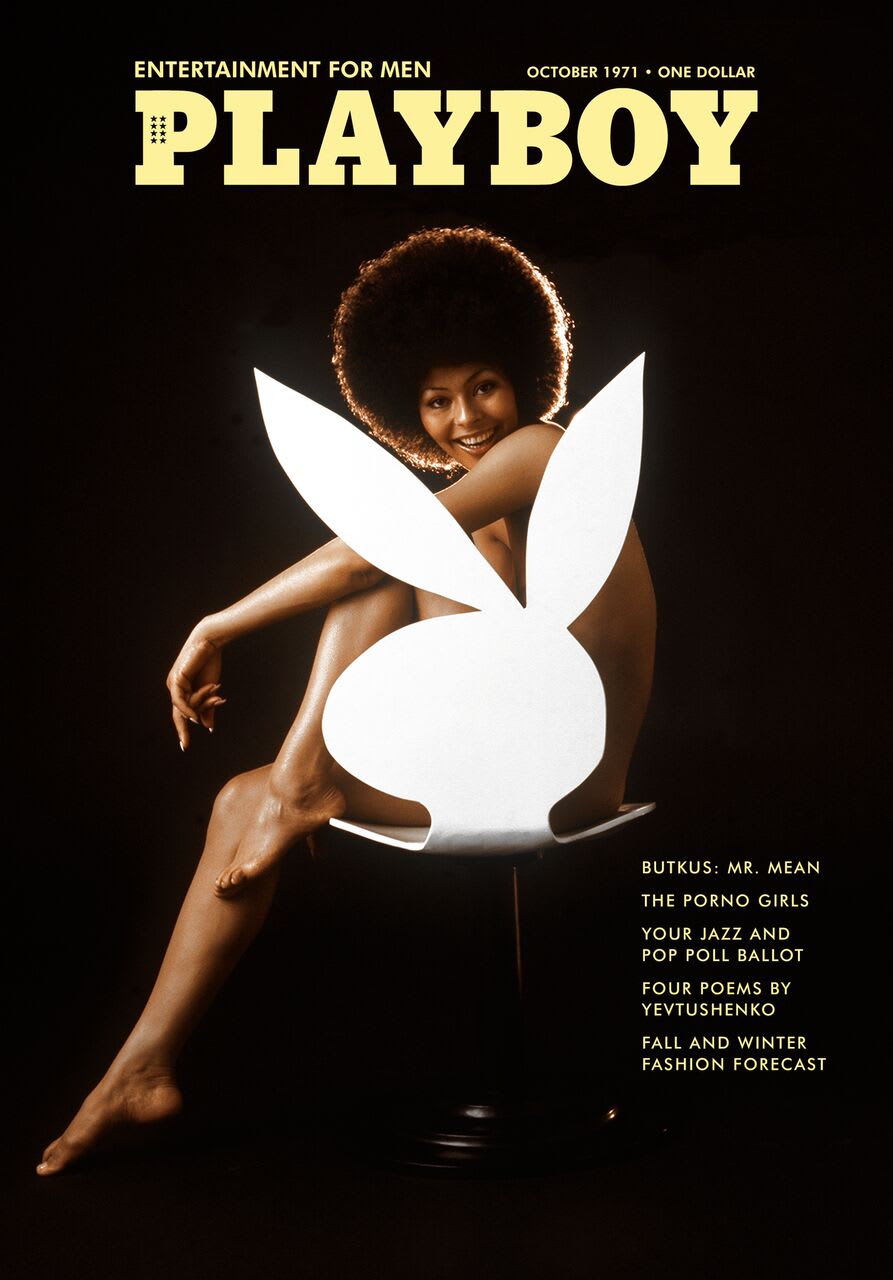
While Playboy had featured African American women inside its magazine before (Jennifer Jackson was the first, in their March 1965 issue), it wasn't until October 1971, nearly 18 years since they began, that Darine Stern graced the cover of Playboy, becoming the first African American woman to do so. It was a huge statement, especially when you consider that it wasn't until nearly 25 years later that Sports Illustrated gave a black woman (Tyra Banks) the opportunity to grace one of their covers.

